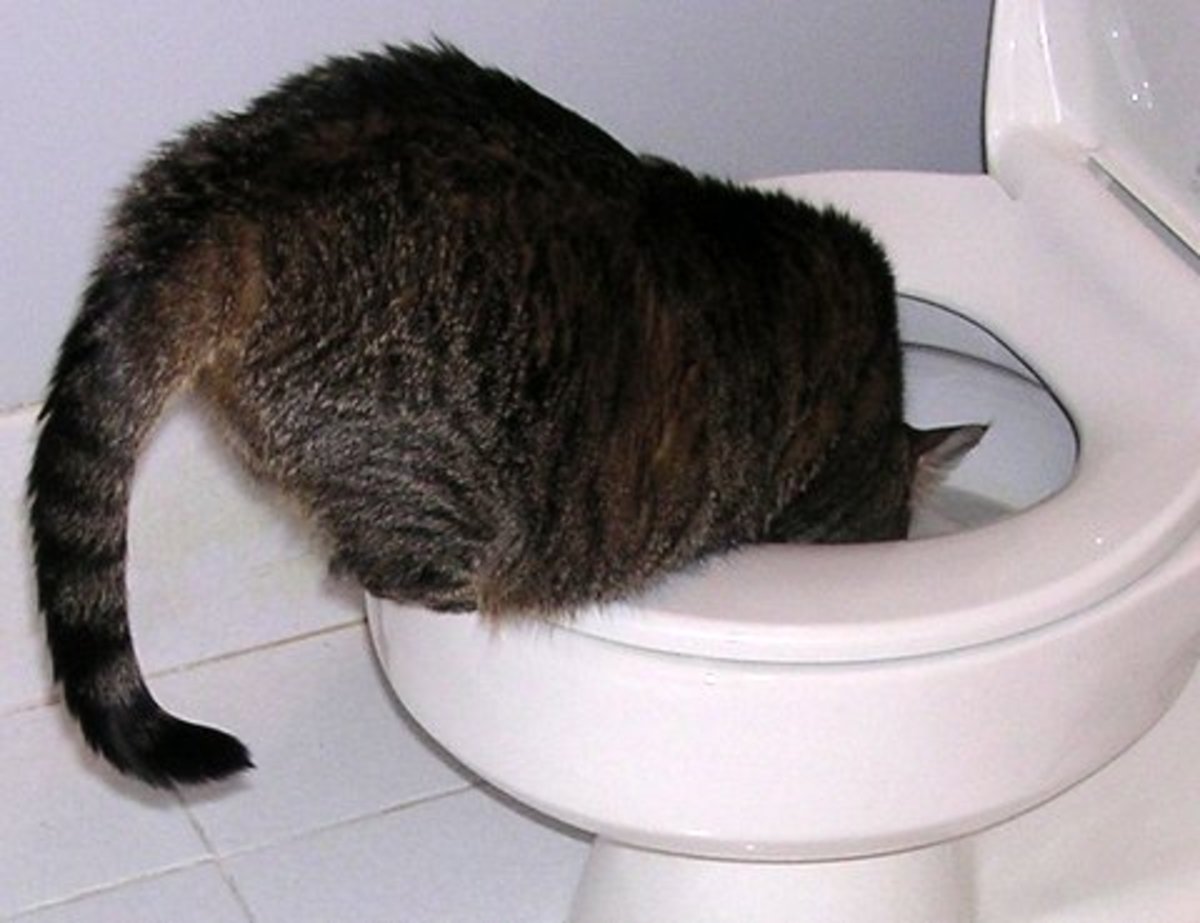Avoid Flush Cat Poop Down Your Toilet - Maintain Your Home's Pipe System
Avoid Flush Cat Poop Down Your Toilet - Maintain Your Home's Pipe System
Blog Article
The author is making a few good points about Don’t flush cat feces down the toilet in general in this article in the next paragraphs.

Introduction
As cat proprietors, it's important to bear in mind just how we deal with our feline good friends' waste. While it might appear convenient to flush feline poop down the toilet, this method can have destructive effects for both the setting and human health and wellness.
Environmental Impact
Flushing pet cat poop introduces dangerous microorganisms and parasites right into the water system, posturing a significant risk to marine ecological communities. These pollutants can negatively affect marine life and concession water top quality.
Wellness Risks
Along with ecological problems, flushing feline waste can additionally present health risks to humans. Feline feces may consist of Toxoplasma gondii, a bloodsucker that can trigger toxoplasmosis-- a possibly serious disease, especially for pregnant females and individuals with weakened immune systems.
Alternatives to Flushing
Thankfully, there are safer and more liable methods to take care of pet cat poop. Think about the adhering to options:
1. Scoop and Dispose in Trash
The most typical technique of getting rid of cat poop is to scoop it right into an eco-friendly bag and toss it in the trash. Be sure to make use of a specialized litter scoop and deal with the waste promptly.
2. Usage Biodegradable Litter
Select biodegradable pet cat litter made from products such as corn or wheat. These trashes are environmentally friendly and can be securely disposed of in the garbage.
3. Bury in the Yard
If you have a backyard, take into consideration burying feline waste in an assigned location away from veggie gardens and water resources. Make sure to dig deep sufficient to stop contamination of groundwater.
4. Install a Pet Waste Disposal System
Buy an animal waste disposal system particularly designed for pet cat waste. These systems use enzymes to break down the waste, lowering odor and ecological impact.
Final thought
Accountable pet ownership expands past offering food and sanctuary-- it likewise includes appropriate waste management. By avoiding flushing feline poop down the commode and going with alternate disposal techniques, we can decrease our environmental footprint and protect human wellness.
Why You Should Never Flush Cat Poop Down the Toilet
A rose by any other name might smell as sweet, but not all poop is created equal. Toilets, and our sewage systems, are designed for human excrement, not animal waste. It might seem like it couldn’t hurt to toss cat feces into the loo, but it’s not a good idea to flush cat poop in the toilet.
First and foremost, assuming your cat uses a litter box, any waste is going to have litter on it. And even the smallest amount of litter can wreak havoc on plumbing.
Over time, small amounts build up, filling up your septic system. Most litter sold today is clumping; it is made from a type of clay that hardens when it gets wet. Ever tried to scrape old clumps from the bottom of a litter box? You know just how cement-hard it can get!
Now imagine just a small clump of that stuck in your pipes. A simple de-clogger like Drano isn’t going to cut it. And that means it’s going to cost you big time to fix it.
Parasitic Contamination
Believe it or not, your healthy kitty may be harboring a nasty parasite. Only cats excrete Toxoplasma in their feces. Yet it rarely causes serious health issues in the cats that are infected. Most people will be fine too if infected. Only pregnant women and people with compromised immune systems are at risk. (If you’ve ever heard how women who are expecting are excused from litter cleaning duty, Toxoplasma is why.)
But other animals may have a problem if infected with the parasite. And human water treatment systems aren’t designed to handle it. As a result, the systems don’t remove the parasite before discharging wastewater into local waterways. Fish, shellfish, and other marine life — otters in particular — are susceptible to toxoplasma. If exposed, most will end up with brain damage and many will die.
Depending on the species of fish, they may end up on someone’s fish hook and, ultimately on someone’s dinner plate. If that someone has a chronic illness, they’re at risk.
Skip the Toilet Training
We know there are folks out there who like to toilet train their cats. And we give them props, it takes a lot of work. But thanks to the toxoplasma, it’s not a good idea.

As a reader on How to Dispose of Cat Poop and Litter Without Plastic Bags, I figured sharing that section was smart. Do you know about anybody else who is very much interested in the niche? Do not hesitate to share it. I am grateful for your time. Come back soon.
Article Report this page